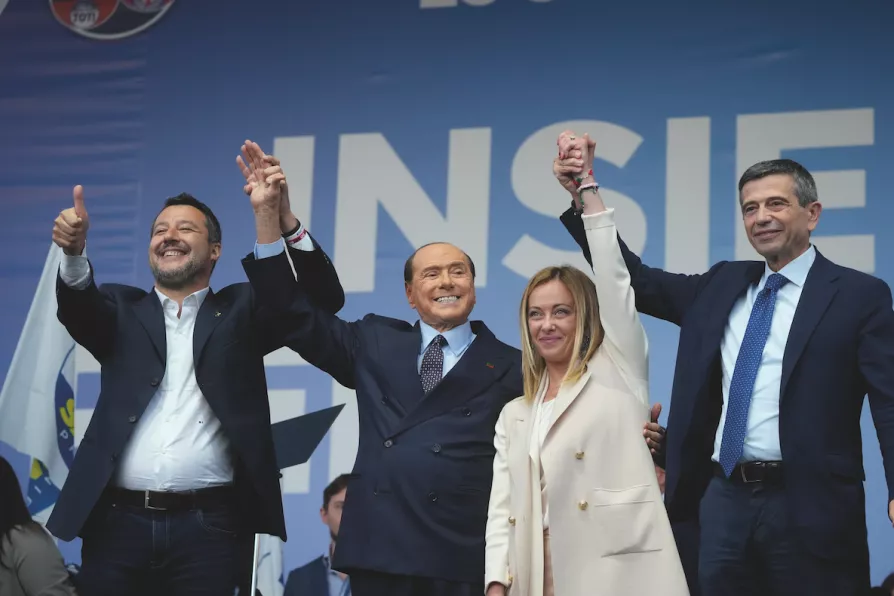Does widespread and uncontrolled use of AI change our relationship with scientific meaning? Or with each other? ask ROX MIDDLETON, LIAM SHAW and MIRIAM GAUNTLETT

 The 2022 coalition of (from left) Matteo Salvini, Silvio Berlusconi and Giorgia Meloni, brought the direct descendant of Mussolini’s original Fascist Party to power for the first time since WWII
The 2022 coalition of (from left) Matteo Salvini, Silvio Berlusconi and Giorgia Meloni, brought the direct descendant of Mussolini’s original Fascist Party to power for the first time since WWII
THE old joke, that Italian film directors, irrespective of their politics, are members of the Communist Party, oddly enough never applied to Nanni Moretti whose films are irresistibly amusing, rich, complex in their construction and self-referential in a way that opens his unfailingly Marxist critique of Italian society and Italian capitalism to endless analysis.
Even when seemingly simple entertainment, Morretti’s films always cast a sharply critical eye over the complexities and contradictions of Italian life and politics. An early critic of the corrupting influence of the privately owned mass media, he is committed to a didactic and pedagogical purpose, to change people’s minds.
The opening scenes of his We Have A Pope (2011) take us around a cardinal’s conclave in the Vatican as each priest silently utters a prayer to their God: “Not me lord, not me.”

CJ ATKINS commemorates one of the most dramatic moments in working-class history

On the 80th anniversary of liberation from Nazi-fascism, left forces in Italy mobilise against genocide, armament, and the Meloni government, reports ANA VRACAR

With the death of Pope Francis, the world loses not only a church leader but also a moral compass










